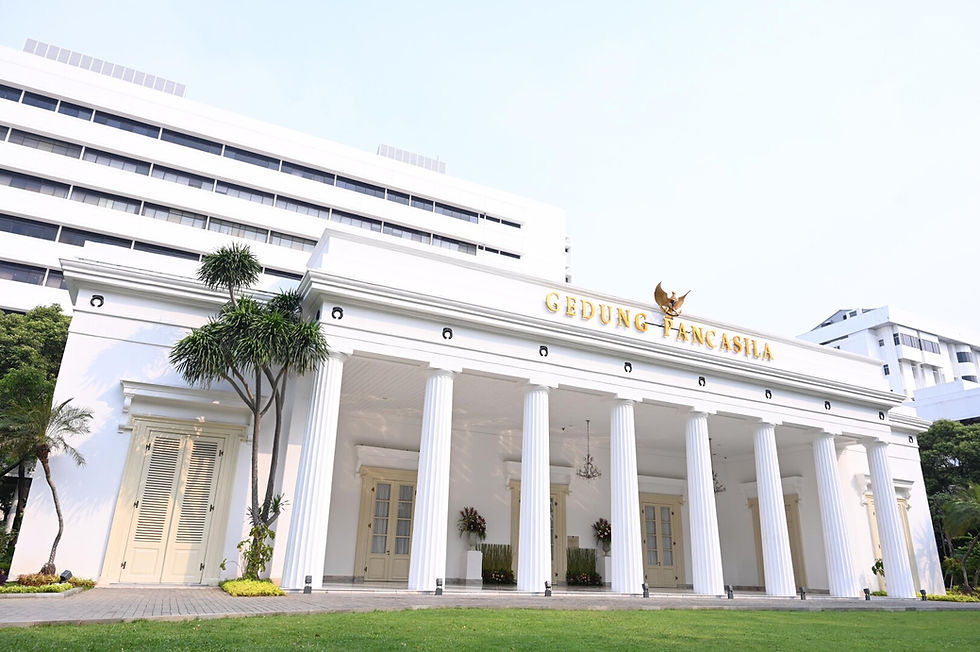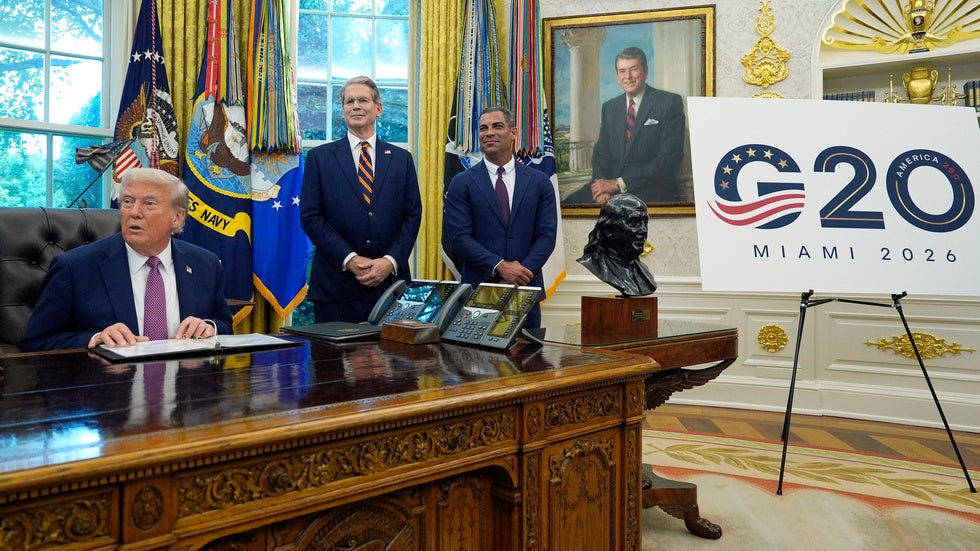Reforming Indonesia’s Diplomatic Machine in a Time of Global Uncertainty
- Noto Suoneto
- Oct 23, 2025
- 4 min read
Updated: Oct 23, 2025

Reform within Indonesia’s diplomatic machinery has become increasingly urgent. The global landscape both political and economic is undergoing rapid and profound transformation. Traditional alliances are being redefined, new blocs are emerging, and the once-stable rules of global trade are now in flux. Former U.S. President Donald Trump’s return to prominence has once again disrupted the foundations of multilateralism, while protectionist tendencies and great-power rivalries further complicate the global order.
In this context, Indonesia faces the challenge of remaining active, relevant, and strategically independent, asserting its role as a constructive middle power and a bridge between competing global interests. To do so effectively requires not only leadership at the highest level but also an agile, well-coordinated, and modernized diplomatic apparatus. One of the most critical institutions in achieving this is the Ministry of Foreign Affairs (Kementerian Luar Negeri, or KEMLU).
Under President Prabowo Subianto, Indonesia’s foreign policy has taken on a noticeably more assertive and personalized character. Many have described the President as Indonesia’s “chief diplomat”, actively positioning himself at the forefront of international engagement: from attending global summits and defense dialogues to spearheading bilateral economic missions.
Prabowo’s Foreign Minister, Sugiono, though relatively new to formal diplomacy, has spent the past year accompanying the President in his foreign engagements, gradually adapting to the complexities of international affairs. While critics argue that Prabowo’s diplomatic approach sometimes appears overactive, and lack in coherence, others appreciate his determination to elevate Indonesia’s international profile and project confidence on the world stage.
Yet, for this proactive diplomacy to yield lasting benefits, it requires institutional depth. The Ministry of Foreign Affairs must serve not only as an executor of presidential diplomacy but also as a strategic engine that ensures consistency, coherence, and long-term policy follow-through.
One of the most notable reforms under the Prabowo administration is the establishment of the Directorate General for Economic Relations and Development Cooperation within KEMLU. This directorate consolidates several key divisions: international trade, investment and creative economy, industrialization and resources, and international development cooperation under a unified strategic framework. The Directorate General is now led by Daniel Tumpal, a seasoned diplomat with experience in economic and multilateral affairs. Daniel was previously Indonesia’s Ambassador to Canada.
This reform is both timely and strategic. As the lines between international politics and economics become increasingly blurred, economic diplomacy must evolve from traditional trade promotion to a more geoeconomic-oriented approach; one that integrates trade, investment, industrial strategy, and sustainable development.
Previously, Indonesia’s economic diplomacy functions were often fragmented, spread across ministries such as Trade, Investment, and Foreign Affairs. The creation of this new directorate signals a recognition that diplomacy today must be economically literate and commercially strategic. It also aligns with global trends where countries such as Japan, South Korea, and even Australia have integrated their trade and foreign policy apparatus to better project influence and capture market opportunities.
Previously, I argued that diplomacy and the economy are deeply intertwined. Economic issues such as trade agreements, market access, and investment treaties are inherently diplomatic in nature. Likewise, diplomatic relations directly shape the flow of trade and investment especially when trust erodes, bilateral relations deteriorate, and policies driven by narrow notions of strategic autonomy often hinder broader economic cooperation.
In the years ahead, finalizing and deepening Indonesia’s international trade agreements will be crucial to supporting economic diversification and resilience. The role of KEMLU, in coordination with other ministries, should not only be limited to negotiations but also to supporting Indonesian businesses mainly small and medium enterprises (SMEs) in accessing new markets, promoting Indonesian products, and navigating global regulatory systems.
Equally important, Indonesia’s diplomats must be well-informed about regional trade dynamics, emerging supply chains, and geopolitical risks that affect market access. For instance, as global supply chains increasingly regionalize due to U.S.–China tensions, Indonesia’s embassies should serve as intelligence nodes, identifying strategic entry points for trade and investment diversification across Asia, Africa, and the Middle East.
The inclusion of an industrialization and resources division within KEMLU reflects Indonesia’s ongoing ambition to move up the global value chain. As the world transitions toward clean energy, Indonesia’s rich endowment in nickel, bauxite, and rare earth minerals has placed it at the center of global industrial competition. This requires private sectors business interest, and also consistent government policy support.
Diplomatic engagement will play a key role in navigating this competition whether by negotiating fair value for Indonesia’s exports, attracting technology transfers for downstream processing, or ensuring environmental and labor standards are maintained. KEMLU must also help shape Indonesia’s positioning in global conversations on critical minerals, supply chain security, and green industrialization, together with other relevant government agencies.
The addition of a development cooperation portfolio further strengthens Indonesia’s capacity to manage and align international aid and partnerships with national priorities. Over the past decade, Indonesia has received more than US$100 billion in various forms of development financing and assistance, primarily in infrastructure, education, healthcare, and climate resilience according to Lowy Institute Southeast Asia Aid Map.
Ensuring that these partnerships are impactful and strategic not donor-driven is essential. Indonesia’s evolving approach should position itself not only as an aid recipient but increasingly as a provider of development cooperation, particularly for smaller economies in the Indo-Pacific and Africa, building on its G20 and ASEAN leadership roles. The role of Indonesia Aid in this context is relevant, as it may and should be able to enhance Indonesia’s soft power and diplomatic influence through international cooperation
The recent appointment of the Special Advisor on Economic Diplomacy named Zelda Wulan Kartika to the Foreign Minister further underscores the recognition that diplomacy must serve Indonesia’s economic transformation goals.
If implemented effectively, these reforms could transform KEMLU into a more agile, forward-looking institution of which capable of anticipating global shifts, advancing Indonesia’s economic interests, and strengthening its strategic autonomy amid an increasingly fragmented world order. Diplomacy does not only begin at home, it must also return home. What we pursue abroad will only be truly successful when it delivers tangible progress and strength at home.
This article written by Noto Suoneto, VP for International Affairs and Operation of Indonesian Business Council (IBC); Founder of Foreign Policy Talks.




Comments